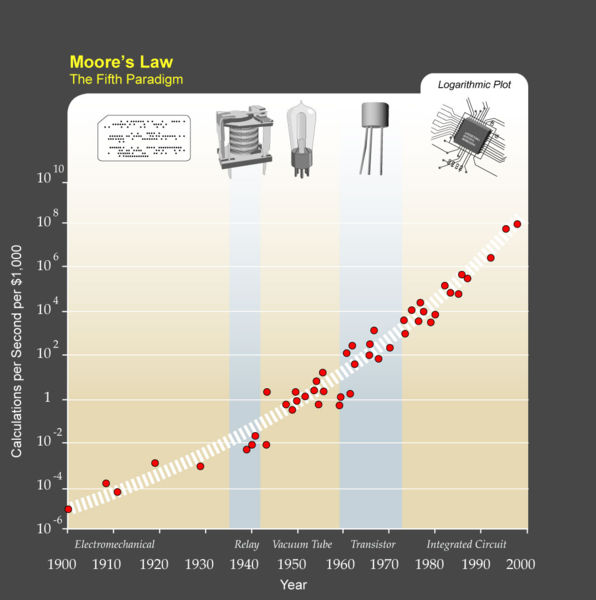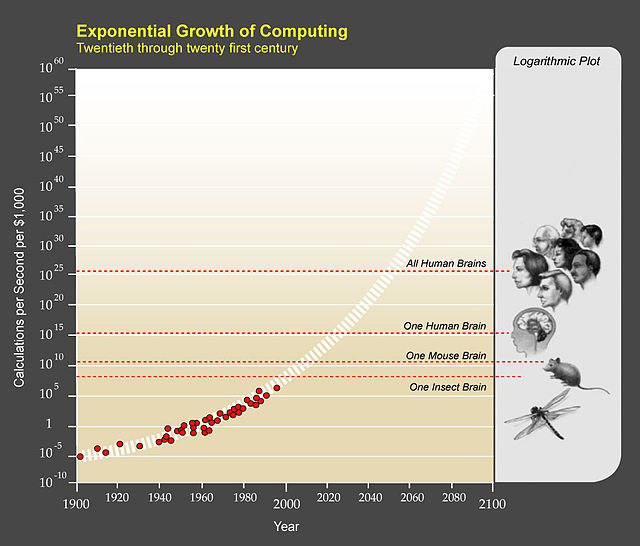In futures studies and the history of technology, accelerating change is the observed exponential nature of the rate of technological change in recent history, which may suggest faster and more profound change in the future and may or may not be accompanied by equally profound social and cultural change.
Mass use of inventions: Years until use by a quarter of US population
Moore's Law expanded to other technologies.
Computer power grows exponentially.
Exponential growth in supercomputer power
Futures studies, futures research, futurism, or futurology is the systematic, interdisciplinary and holistic study of social/technological advancement, and other environmental trends; often for the purpose of exploring how people will live and work in the future. Predictive techniques, such as forecasting, can be applied, but contemporary futures studies scholars emphasize the importance of systematically exploring alternatives. In general, it can be considered as a branch of the social sciences and an extension to the field of history. Futures studies seeks to understand what is likely to continue and what could plausibly change. Part of the discipline thus seeks a systematic and pattern-based understanding of past and present, and to explore the possibility of future events and trends.
Moore's law is an example of futurology; it is a statistical collection of past and present trends with the goal of accurately extrapolating future trends.
The original visualization of the Tableau Economique by Quesnay, 1759
Title page of Wells's The War That Will End War (1914)






